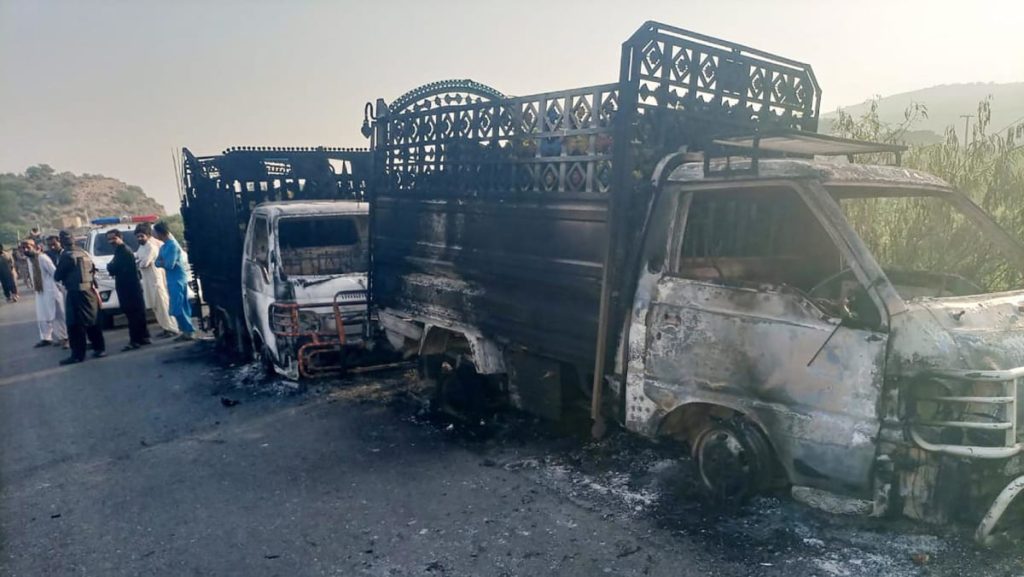More than 60 people were killed in Balochistan, Pakistan during attacks by separatist militants on police stations, railway lines, and highways. This is part of a decades-long insurgency by ethnic groups seeking secession of the resource-rich province, which is home to major China-led projects. The attacks were described as a plan to create anarchy by the Interior Minister, who confirmed that security forces had killed 12 militants in operations following the attacks.
Pakistan’s military reported that 14 soldiers and police, along with 21 militants, were killed in fighting after the largest attack, which targeted buses and trucks on a major highway. Rail traffic to Quetta was suspended following blasts on a rail bridge, and militants also attacked a rail link to Iran, resulting in fatalities and injuries. Additionally, police and security stations in Balochistan were targeted, resulting in at least 10 deaths, according to local officials.
The Baloch Liberation Army (BLA), an armed militant group, claimed responsibility for the attacks under the operation name “Haruf.” The group stated that there were more attacks carried out over the past day, but these have not been confirmed by authorities. The BLA accuses the central government of unfairly exploiting the province’s resources and seeks independence for Balochistan, as well as the expulsion of China. The group claimed that suicide bombers, including a woman from Gwadar, were involved in an attack on a paramilitary base.
This series of attacks coincided with the anniversary of the death of Baloch nationalist leader Akbar Bugti, who was killed by Pakistan’s security forces in 2006. The BLA, along with other ethnic insurgent groups, continue to battle the central government over perceived exploitation of gas and mineral resources in Balochistan, which faces high levels of poverty. The attacks represent a significant escalation in violence by separatist militants, targeting key infrastructure and security installations in the region.
The attacks in Balochistan have sparked concerns about the stability and security of the province, which plays a crucial role in major China-led projects such as the Gwadar port and the Reko Diq gold and copper mine. The increase in violence threatens the economic development and strategic interests of both Pakistan and China in the region, as well as the safety of local residents and travelers passing through the targeted areas. The government faces a significant challenge in addressing the grievances of ethnic groups while maintaining law and order in Balochistan.
The attacks in Balochistan highlight the ongoing challenges faced by Pakistan in addressing long-standing grievances and conflicts with ethnic and separatist groups. The government must work towards finding a peaceful resolution to the insurgency in Balochistan, addressing issues of resource exploitation and economic inequality while ensuring the safety and security of all residents. The recent attacks serve as a stark reminder of the complex dynamics at play in the region and the need for sustained efforts towards reconciliation, development, and peacebuilding in Balochistan.













